Good for the health of the people and the planet
By David Galler | 1 December 2020
The global health crisis represented by COVID-19 is, in many ways, a precursor to the greater existential threat posed by the coming climate change. Intensive care specialist David Galler argues the health sector has an important role to play.
Can we achieve a new and better normal in the post-COVID-19 environment? If we are smart, we will learn from our experiences of the pandemic to better understand the precarious and uncertain nature of our lives, question how we have come to live so out of sync with the planet and respond with urgency to safeguard our future.
Every crisis brings with it opportunities. New Zealand is well positioned to take advantage of the opportunities COVID-19 brings with it to become more self-reliant and resilient to future global shocks in particular to climate change. But to achieve that will require more from us then we have been prepared to do to date.
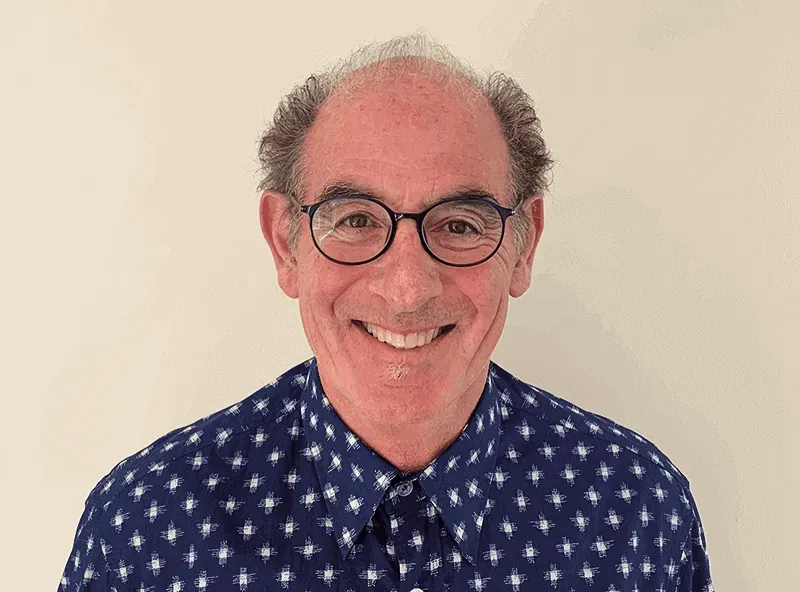
David Galler, Intensive Care Specialist
Medical professionals, the organisations that represent us and the whole of civil society have key roles in advocating for immediate action to limit temperature rise and to prepare for a very different future.
Our elected representatives can bring about change, but this relies on strategic and sustained advocacy from the public. Because they represent people with a wide range of views, the tendency for politicians is to gravitate towards the centre to appeal to as broad a constituency as possible.
This means politicians frequently overestimate opposition to bold, transformative change and underestimate its support. This approach ensures business as usual, but it is one with potentially deadly consequences when confronted with the kind of global catastrophe represented by climate change.
This is the time for health professionals to organise and demonstrate the kind of focused leadership needed to pursuade our leaders to act to secure the future we need for our children and grandchildren.
I work in South Auckland for Counties Manakau Health, a DHB that serves a population of well over 600,000 of our most vulnerable people.
This population is rich in many respects, with outstanding communities who do extraordinary things, but in my mind, the area has for far too long been abandoned to fast-food chains, pokie machines and liquor store owners.
It is home to a high proportion of young people. Many South Aucklanders move from one overcrowded house to the next, from one GP to another, and the kids from school to school. It is also a place where many suffer from the 'South Auckland full house' – a six-carded handed that deals out obesity, diabetes, renal impairment, ischaemic heart disease, hypertension and gout – at rates far higher than that of the general population.
Purely from a healthcare point of view, the population of South Auckland is the most complex in the country, and its access to services is more restricted than in smaller, more affluent, mainly Pākehā cities such as Christchurch, Dunedin and Wellington.
These issues of inequity and poor value are directly linked to the climate challenge we face. If we can better address the root causes of the complex health issues faced in areas like South Auckland, we can also begin to effectively address the impact our own health sector has on the climate and demonstrate the kind of national leadership we can and must be capable of.
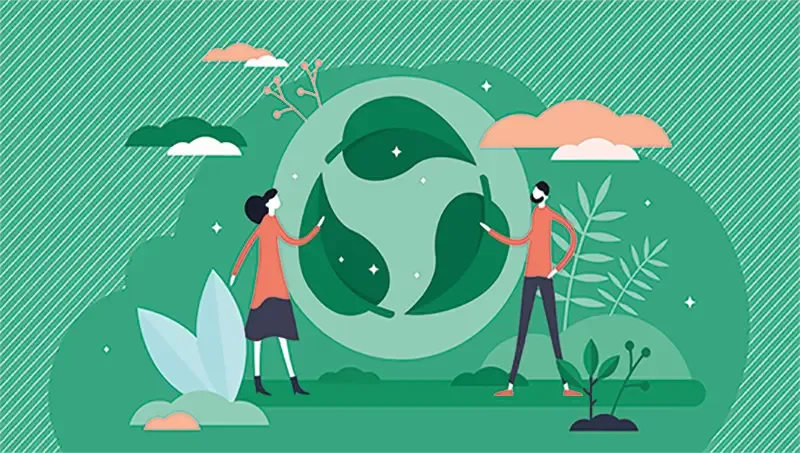
In the last five years, these challenges have become the focus of our carbon reduction group based at Middlemore Hospital. Our journey started in 2011 thanks to a small group of hospital staff who understood the great threat climate change poses to human health.
In 2011, Counties Manakau Health was the first healthcare organisation in Australasia to join Enviromark's Certified Emissions Measurement and Reduction Scheme. By the time of our last audit in September 2019, we had reduced our carbon footprint by 26% despite significant growth in staff numbers and in the volume of our work.
We know healthcare contributes between 3% and 10% of a nation's greenhouse gas emissions, and 60% of that contribution is related to the carbon costs of the devices and pharmaceuticals we use and prescribe every day. This means that, even if we were to have energy-neutral healthcare facilities, the sector's footprint would remain substantial. The only way to effectively reduce that footprint would be by doing less work, and the only way that might become possible is by investing more of our thinking, planning and doing into keeping people well.
After all, health and wellbeing are not maintained in a doctor's office or in a hospital but in where and how people live. I am an intensive care doctor, and I know that most of my patients come to me because of an embedded series of failures beforehand. We call these the social determinants of health, and they account for over 80% of our overall population's health status. It is these determinants that have become the focus of our carbon reduction group.
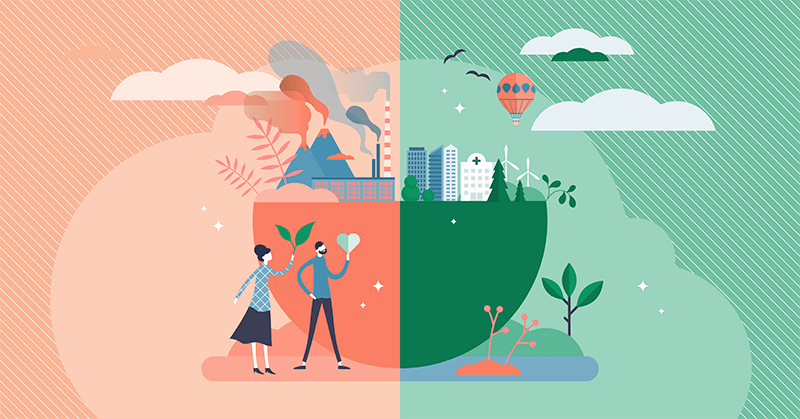
We've come to realise that what is good for the environment is also good for health, and what is good for health is always good for the environment. As a result, we have redefined our work as health and wellbeing initiatives.
We have also grown to appreciate that the trajectory of planetary health and population health are closely linked, meaning that our success as individuals, as communities and as a nation depends on the integrity of our ecosystems, the strength of our social networks and our ability to create economic opportunity.
A good place for us to start rethinking our approach is the Māori concept of Te Whare Tapa Whā. It is a holistic view, encompassing much more than physical health to include the wellbeing of whānau, the mind and the spirit.
For some indigenous peoples – like the four great tribes of British Columbia – health and wellness sit alongside other enablers including a sense of identity and an appreciation of place, decent housing, good education, meaningful employment and more. This combination creates the foundation for people to realise their individual and collective potential.
There is an overarching sense of purpose in this thinking, which allows us to focus our efforts across a wide range of activities to achieve our goals. For those tribes of British Columbia, it allows them to create the future they want instead of remaining victims of chaotic policies, which take them round in circles.
This same overarching sense of purpose is at the core of our work too, but because of the entrenched power of the status quo and the difficulty of achieving real change, translating this thinking into action has not been easy.
We have started with a call to redefine 'value'. Traditionally seen in terms of outcomes divided by costs, this value equation has been simplified to 'value for money', which in turn has been simplified to getting as much as you can for as little as possible.
That's been our modus operandi for a long time, and only now are more of us becoming cognisant of its consequences. Value for money has delivered us a legacy of $40 billion worth of leaky homes, mould-filled buildings at Middlemore and elsewhere and many other short-term outcomes that come with long-term liabilities, including impacts on the climate.
If the health sector would speak with a single, strong and unified voice, to be more strategic and play a much tougher game we would be well on our way to building a healthier, more sustainable future for our children. That is our challenge, and COVID-19 surely is the catalyst for us to make that happen.
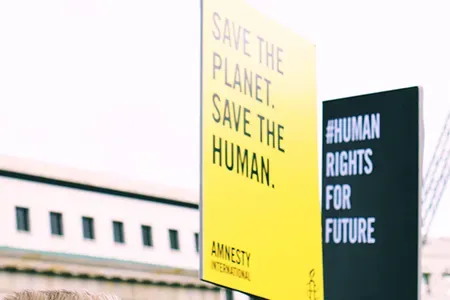
14 December 2017
Climate change carries a health warning. A group of volunteer New Zealand doctors is working hard to raise awareness among Kiwis of how climate change could affect their health.
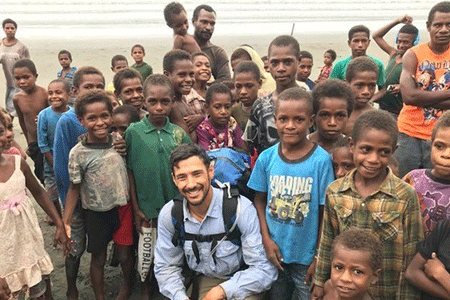
3 August 2020
MAS Here for Good Scholarship winner Carlton Irving tells us his volunteering story and of his desire to champion change for our Māori and Pasifika whānau.
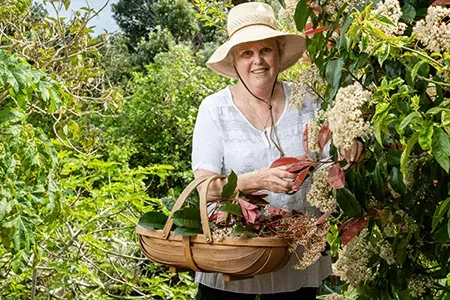
13 January 2020
MAS Member Robin Treadwell has always been interested in sustainability and living an eco-friendly lifestyle, but she’s proving anyone at any age can take action against climate change.